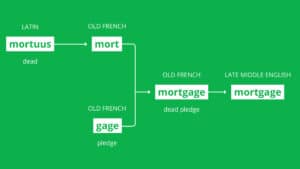Whether you are buying a house in New Zealand for your family, or another for the property portfolio, there’s a process to purchasing property here in New Zealand that you need to be aware of. The house buying process is relatively straightforward, although there are many factors involved as you work through each step.
Delays, competition and miscommunication can frustrate the whole affair, so if you haven’t bought property before, and this is good advice for seasoned investors as well, don’t try to avoid a few of the necessary expenses just to save a bit of coin.
A mortgage broker who knows your goals and finances, a trusted lawyer and several real estate agents who are on your side are your best friends throughout the house buying experience. When it comes to finding and obtaining property that you’re looking for, you’re going to want the process to be as smooth and seamless as possible.
In this article, we have identified what we believe to be the ideal 9 steps to buying a house in NZ. You can pinpoint where in the journey you’re at for guidance and advice. Perhaps you can compare a few different approaches within each milestone that might be relevant to you. You can look at our definitions as well, to make sure you understand the role each professional has to play as well as what some of your options actually do mean.
Step 1: So you’re thinking of buying a house in New Zealand?
If you’re reading this article, then there is no doubt that you’re thinking about purchasing property. But should you be? There are a few things you best ensure you’re quite comfortable with here before advancing onto the next steps.
With current changes to CCCFA laws and tightening restrictions, you’re going to need all the help that you can get, now, more than ever.
Whether it is saving for your initial house deposit, understanding how you can make your equity work in your favour or simply understanding your options, we’ve got your back.
Saving for a deposit can be arduous and even if you obtain the necessary funds through a family gift, inheritance or you strike it lucky, a bank is going to look pretty deep into your spending habits to determine your level of reliability and the subsequent risk they take with lending you a large sum of money. As restrictions tighten, you need to satisfy more expectations than what has been previously required.
Generally, the banks consider the last 3 to 6 months of your statements, so you’re going to need a little preparation on your side. If you have that much time available to you before approaching a lender for pre approval, you can begin shaping your budget to paint yourself in the best possible light. Couple a few of these budget plans with some ideas guided by an experienced advisor and you can jump through the hoops that you need to with confidence.
Know what financial freedom means to you. Understand exactly what your options are and what path you need to take to achieve those goals. For example, instead of using the equity in your home for holidays, unnecessary renovations or new appliances, investing in property might get you mortgage free in 7 years. Although we encourage our clients to move beyond mortgage free all the way to financially free.
After that, you can take as many holidays as you please.
We have set ourselves apart from the competition. We focus on educating our clients to understand the opportunities that are available. When you’re confident with your money and with the ways of the system, then you can use this to your advantage.
Check out what we can offer before deciding for yourself whether you’re ready to buy a house in NZ.
Step 2: work out your budget
A mortgage calculator can show you the borrowing power that you have. It can indicate your UMI (uncommitted monthly income), potential refix savings, usable equity and much more. You simply need to input some honest data about your incomings and outgoings and the calculator does the rest. It is a great first step in working out what you can afford and what you might be able to use to buy property.
You can also factor in other situations, such as the impact of a potential pay rise, the loss of an income or whether you are able to adjust for rising interest rates. Using a mortgage calculator gives you the ability to monitor variabilities to improve your confidence regarding your borrowing power.
After you have played around extensively, your next step is to find a mortgage advisor with whom you can connect with. Don’t settle with the first one you call. Consider recommendations and reviews before making time for a consultation and during your one on one, give all you can to see whether that professional is responsive to your needs.
Having a connection with your advisor allows you to feel comfortable with what is to come.
As we mentioned before, the CCCFA have tightened the lending criteria, meaning that banks will become more rigorous with their testing measures. They are seeking to determine your level of risk over the coming few years. Something no one can entirely prepare for.
So you need to make a budget that complies with such measures and one that you are able to stick with. We can offer spreadsheets and visual representations of information to help you to both understand your current situation and your ideal budget.
Our up-to-date resources can keep you one step ahead regarding your potential lender’s current mentality on borrowing. We would rather you avoided disappointment or complications when seeking the figure you’re looking to borrow.
Step 3: get pre approval (or at least prequalified)
Hopefully you’ve decreased outgoings and potentially increased your income over the past few months in preparation for a conversation with a lender. Your budget is going well. Perhaps you’ve owned your home for a while now and are confident that you have a decent amount of equity stored up that you would like to make the most of. Your next step is to approach a bank to obtain pre-approval.
Pre approval is a preliminary evaluation. It determines the amount a bank is likely to allow you to borrow in order to purchase a home. It gives you a much clearer idea of what you can look for when looking around for property to buy.
Pre approval is not a guarantee. It is a figure that you can work with, with relative confidence as you seek a house to buy.
This figure remains valid for only 90 days and can also be retracted at the discretion of the bank at any time should situations change drastically. So, once you have been pre approved, we suggest you work as swiftly as you can, but without making rash decisions. As you can see, there are a few more steps in the house buying process in NZ to go.
If you are a first home buyer, don’t forget to take into account the grants that may be available to you, as well as your Kiwisaver investments. There are several options that might be available to you, which can increase your deposit amount by thousands. We can help you understand what you need to do to make the most of these benefits.
Step 4: house hunting: looking for a house to buy
Now the fun can really begin!
Don’t allow yourself to become tightcast when house hunting. It can be easy to have a very specific property in your head that you’re looking for, but this can actually hold you back from finding something great.
We say that you should quit looking for that ‘unicorn property’, the one-in-a-million deal and rather keep your eye out for a ‘stallion’. Stallion properties are ones that will run well for a long time.

With a figure in mind thanks to pre-approval, you can do some serious research. Let the real estate agents in your area know that you are a potential buyer with pre-approval obtained. You will find that as you chat with these professionals at open homes you’re going to get to know them and they, you. Expect follow up calls if you have expressed interest, so if you aren’t interested in a property for whatever reason, be honest to save time and energy for both parties.
Just as a little support during this potentially exhausting period of the house hunting process, keep these ideas in mind when you are searching for potential property to ensure you don’t overlook a great buy:
- Research online.
Easily done these days. Take the opportunity that remote viewings provide to look beyond your own neighbourhood. By looking at other cities in New Zealand, potential investment properties can be well within your reach.
- Question everything.
As long as you are questioning everything, you won’t be blindsided by situations that are out of your control. For example, you’ll be able to take note of any developments that are in the works either commercially or residentially. Such developments can hinder or help a property to appreciate in value.
Join local Facebook groups and get to know the community to give you a feel for an unknown area. You can ask questions for honest feedback and take note of trending topics in discussions.
- Limit non-negotiables.
Just because a property has been styled to have a certain number of bedrooms, for example, does not mean that a small tweak could change everything. IIf the price is right, you can remodel, so avoid narrowing down your search and missing out on a property that you could easily transform into exactly what you’re looking for.
Limit your non-negotiables to aspects such as land size and distance from amenities.
Respect that you probably don’t know what you want in a property as you conduct your search because inspiration can always strike in unknown ways. Maintain an open mind during this exciting time.
Step 5: property inspections
Here is where many potential home buyers start to stumble. The paperwork and jargon within the house buying process can be bamboozling. You’re not sure what you can skip for certain properties and what you shouldn’t. You don’t want to double up on paperwork and pay for reports unnecessarily.
If you’re unsure what you need to do to buy a house, this step 5 is a very important part of the process.
Let’s break down each report you’re provided with or need to source yourself if you are interested in a property. That way, you can get a better idea of what you need to ensure yourself a safe purchase, and why.
When applying for a home loan to purchase an existing property, a lender generally asks for a registered valuation. This is so they can be assured that the property is livable, solidifying the notion that you will be able to repay your debt over time.
A registered valuer comes into the property and using up to date and current analytical processes, determines the value of a home at any one given time. This service costs about $1000. It, at times, is a necessary expense when asked for by a bank and is a beneficial resource to have as you inch closer to buying property in NZ.
- A builder’s report.
A document prepared by a qualified builder is yet another option that is advisable to those looking to purchase established homes. Be aware that there is a cost to this and by seeking affordable options, you may not receive a comprehensive report.
One factor to be mindful of is that with any builder’s report, you have a good amount of indemnity insurance to protect you later on should something be in need of repair later on that was not identified.
You may be provided with a dated builder’s report for free by an agent, which is useful. However there is no level of assurance with this and you should seek your own in addition to this.
There are plenty of things that a qualified and accredited builder will consider when inspecting a property. From the roof to the foundation, wiring and water, insulation and retaining walls, the building itself will be thoroughly inspected from top to toe.
Whilst you look around, don’t forget to inspect the property for yourself. With considerations such as drainage, trees, boundaries and fences, it’s best you take the time to cast a critical eye over the land. Subsequent house viewings are important for this reason, as your initial open home is often dominated by the heart.
- A LIM report.
A LIM (Land Information Memorandum) report can be obtained from your local council for a fee, with a waiting time of a little over a week in most cases. It can be provided for free as a part of the information that is doled out during open homes. Agents may take the time and front the expense to provide this information for you, however if they don’t, it isn’t too difficult to source it yourself.
It tells you if the entire building, including alterations or additions have been signed off by the council. It shows you what areas are prone to flooding or are at risk of climate induced erosion or damage.
Used wisely, a LIM report gives you fantastic insight into the quality of the land that you’re looking to purchase and the legality of the buildings that have been placed on it.
Alongside a builder’s report, a LIM is a necessary addition to the documentation you should be arming yourself with to strengthen your resolve as to whether a property is worth what you’re prepared to pay for it.
Step 6: the different home buying methods.
As you’re sifting through trademe.co.nz, realestate.co.nz and on real estate websites and magazines, you’re bound to come across the different sales methods that are used to purchase property in NZ.
These are predominantly:
- Asking Price
- Auction
- Tender
- Deadline Sale
Each method has its advantages and setbacks, which we will touch on now so that you can fully understand the purpose of each one.
- Asking Price.
This is one of the most common forms of house sales in New Zealand, where both buyer and seller are given the opportunity to negotiate a price. This allows both parties to have some say in the matter, appealing to both a buyer’s and seller’s market.
There is the flexibility here to make an unconditional cash offer, or one with conditions. Conditions could be awaiting a building report that is clear of faults or for the sale to go through of the buyer’s current home.
- Auction.
For the buyer, an auction can be a little intimidating. Go along to a few without intention to buy to get a feel for them before your potential big day. Everything happens very fast in an auction listing and you can either blow your budget in minutes, or enjoy some huge savings.
An auction is unconditional. When you win the final bid, you are legally obliged to purchase it. A 10% deposit on the day is expected, so you do need to have your finances in order before it goes under the hammer.
You can try your luck with a pre-auction offer at any time, potentially saving everyone time and stress on auction day.
- Tender.
A price indication is sometimes offered, but generally with a tender sale, each prospective buyer sends in a written confidential offer of the sum they are willing to pay before a certain date.
The property may be sold prior.
A disadvantage to the buyer of this sales method is that you often have little idea what the buyer is looking to get for a property, so you need to rely on reports and research to offer a fair yet enticing offer that gets you noticed.
- Deadline Sale.
A deadline sale is much the same as a tender in the way that potential buyers make an offer before a certain date. However, there are less rules that need to be adhered to which benefits both vendor and buyer.
Deadline sales are also established through standard purchase agreements, rather than with specific tender documents.
Step 7: making an offer
So, you’ve found a property that ticks all the boxes, you’ve arranged all necessary documentation and you’re happy with the findings. You’re ready to make an offer.
But do you throw out your best price first, or leave yourself with a little wriggle room?
That is down to how you feel when the moment arrives, with many factors coming into play. In general though, by putting your best foot forward and after doing thorough research on the value of the property so that your offer is neither too high or low, you can only give yourself the best chance at being the one with the accepted offer.
When making an offer, we mentioned before that you can attach conditions to it. The less conditions, or making an unconditional offer is more favourable to the seller as there are less chances for the purchase to fall through, however if your offer is good enough, it will certainly be considered.
We know that taking the plunge and making an offer is a huge step. Our mortgage advisors can prepare you for this moment in every way so that you can feel confident knowing when the time is right. We run accurate numbers and use smart legal clauses to ensure that you won’t be paying too much for a property. Have a trusted lawyer on your side for additional security.
So don’t be afraid to make several offers on different properties within a short amount of time, unless they are legally binding auction bids. Remember your pre-approval only lasts for 90 days, so time is not on your side to wait for vendors to deliberate before you focus on another.
Step 8: confirm your home loan
Before an offer you’ve placed on a property goes unconditional, you need to secure that pre approved amount and confirm your home loan.
There will be a few simple hoops to jump through at this stage as you approach your lender yet again. These will be along the lines of proving that you have arranged property insurance, providing details and documentation of the property and so on.
Now you get to consider what repayment schedule for your home loan might be best suited to your circumstances. One of our focused and friendly members of our team can walk you through situations that call for different repayment schedules and help you to align your goals with one of these methods.
We use bespoke data so that you can see your own goals visualized, giving you motivation and a clear path ahead.
Step 9: post unconditional
Before everything is settled, there are a lot of loose ends that need to be tied up to make the transaction legitimate and legal.
Here is where your trusted team of experts shine, doing all of the complex, nitty gritty paperwork so that you can power up for the day when the keys are handed over.
We do not suggest you try to tackle a property purchase on your own. Even if you have gone through a private sale without real estate agent involvement, you are going to need some professional support at the final exchange.
An accountant is useful to help you with tax deductions and entities. Should this property be an investment property, then a property manager is going to help you to bring the building up to code and support you with bringing in great tenants.
But a lawyer is absolutely necessary for all of the property finalisations, including reviewing the sale and purchase agreement documents and securing good due diligence clauses. Money is held by lawyers during this finalization process for additional security.
These things all take time, but a date will be set as you shift into purchase completion. With your mortgage advisor also supporting you throughout the final stages if need be, should you have any questions, you are always welcome to lean on our experience and knowledge to keep you smiling.
FAQ:
Can foreigners buy in NZ?
In August 2018, changes were made to the Overseas Investment Amendment Act. Currently, all non-resident foreigners, apart from Australian and Singaporean citizens who wish to buy residential land, cannot purchase property in New Zealand.
More information can be found here.
Can I make an offer on a house without preapproval?
Yes. But be careful, especially when the CCCFA laws have tightened so significantly of late. At a certain point in the sales process, specifically when you go unconditional, you are legally contracted to complete the sale.
If you are unable to come up with the entire amount offered, you will be fined.
Why do I need professional support to buy a house in NZ?
Whether it is a lawyer, real estate agent or a mortgage advisor, having professionals who are specifically trained and paid to do a role that you have limited knowledge in is going to benefit you immensely.
In some situations, you legally need professional documentation, stamps and certainty, such as with lawyers and accountants. Purchasing a house in NZ requires a lawyer to oversee and sign off necessary paperwork.
Mortgage advisors are a free service to you and can provide a wealth of financial support and guidance. By acting as a buffer between lenders, our advisors are able to bridge the gap and create opportunities that you might have otherwise missed out on. The same can be said for real estate agents, who are also well connected professionals with the intention to offer you the best possible service.
We wish you the best of experiences as you embark on your unique house buying adventure here in NZ. No two processes are quite the same and in this fast paced environment, we are all kept on our toes and ready for whatever is to lie ahead.













